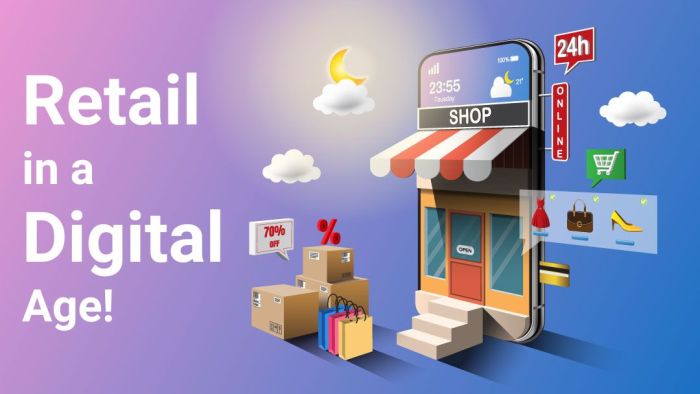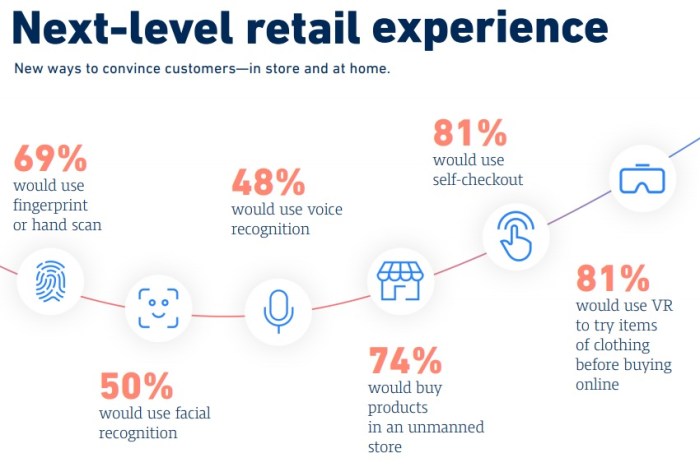Why Retail Advertising Agencies Still Matter in the Digital Age
Exploring the continued relevance of retail advertising agencies in the digital age sets the stage for a journey through their historical significance, evolving strategies, and impact on consumer behavior.
Delving deeper into this topic sheds light on the value they bring to brands in a rapidly changing marketing landscape.
Importance of Retail Advertising Agencies
Retail advertising agencies have played a crucial role in helping brands connect with consumers and drive sales for decades. These agencies specialize in creating targeted campaigns that resonate with the target audience and drive foot traffic to retail locations. In the digital age, retail advertising agencies continue to be relevant and important for brands looking to stand out in a crowded marketplace.
Historical Role of Retail Advertising Agencies
Retail advertising agencies have a rich history of creating iconic campaigns that have shaped consumer behavior and brand perception. For example, the "Got Milk?" campaign launched by Goodby Silverstein & Partners in the 1990s became a cultural phenomenon and boosted milk sales across the United States.
This campaign demonstrates the power of retail advertising agencies in crafting memorable and effective marketing messages.
Successful Campaigns Managed by Retail Advertising Agencies
Retail advertising agencies have been behind some of the most successful campaigns in history. For instance, the "Share a Coke" campaign by Ogilvy & Mather helped Coca-Cola personalize its packaging and engage consumers on a personal level. This campaign not only drove sales but also generated significant buzz on social media, showcasing the creativity and innovation of retail advertising agencies.
Value of Retail Advertising Agencies in the Digital Age
In today's digital age, retail advertising agencies play a crucial role in helping brands navigate the complex digital landscape. These agencies have the expertise to create omnichannel campaigns that reach consumers across multiple touchpoints, from social media to online marketplaces.
Retail advertising agencies also leverage data and analytics to optimize campaigns in real-time, ensuring maximum ROI for brands investing in digital advertising.
Evolving Strategies in Retail Advertising
In today's digital age, retail advertising agencies have had to adapt and evolve their strategies to keep up with the ever-changing landscape of marketing. This shift has seen a move from traditional methods to more digital-focused approaches.
Adapting to Digital Marketing Trends
With the rise of digital marketing, retail advertising agencies have incorporated online platforms, social media, and targeted digital ads into their strategies. They now focus on creating engaging content, optimizing for search engines, and utilizing data analytics to track and measure the effectiveness of their campaigns.
Shift from Traditional to Digital Advertising
Traditional advertising methods like print ads, radio spots, and TV commercials are still used by some retailers, but the majority have shifted towards digital channels. Digital advertising offers more targeted reach, real-time feedback, and the ability to personalize content for different audiences, making it a preferred choice for many retailers.
Effectiveness of Traditional vs. Digital Advertising
While traditional advertising methods can still be effective in reaching a broad audience, digital advertising has proven to be more cost-effective and measurable. With digital ads, retailers can track engagement, conversions, and ROI more accurately, allowing them to optimize their campaigns in real time for better results.
Targeting and Personalization in Retail Advertising

Retail advertising agencies leverage data to create personalized targeting strategies that resonate with individual consumers. By analyzing customer behavior, preferences, and purchase history, these agencies can tailor advertisements to specific demographics, interests, and shopping habits.
Examples of Successful Personalized Advertising Campaigns in Retail
- Amazon: The e-commerce giant utilizes personalized recommendations based on previous purchases and browsing history to suggest products that customers are likely to be interested in.
- Starbucks: The coffee chain sends personalized offers and promotions to customers through their mobile app, taking into account their favorite drinks and past purchases.
- Nike: The sportswear brand creates personalized shopping experiences on their website by recommending products based on a customer's activity level, preferred sports, and style preferences.
Impact of Personalized Advertising on Consumer Behavior and Brand Loyalty
Personalized advertising has a significant impact on consumer behavior, leading to higher engagement, conversion rates, and brand loyalty. When consumers receive tailored recommendations and promotions that align with their interests and needs, they are more likely to make a purchase and develop a stronger connection with the brand.
This personalized approach can enhance the overall customer experience and drive repeat business, ultimately contributing to long-term brand loyalty and advocacy.
Omnichannel Approach in Retail Advertising
The omnichannel approach in retail advertising refers to the seamless integration of various channels, both online and offline, to create a unified shopping experience for customers. This strategy focuses on providing a consistent message and brand experience across all touchpoints, whether it be through social media, mobile apps, websites, or brick-and-mortar stores.
Implementation of Omnichannel Strategies by Retail Advertising Agencies
Retail advertising agencies play a crucial role in implementing omnichannel strategies for brands by utilizing data analytics, consumer insights, and technology to personalize advertising messages. They ensure that the brand message remains consistent across all channels, offering a cohesive experience to customers regardless of where they interact with the brand.
- Retail advertising agencies use customer data to create targeted campaigns that resonate with specific audience segments across different channels.
- They leverage technology such as AI and machine learning to track customer behavior and preferences, allowing for personalized recommendations and offers.
- These agencies also focus on integrating online and offline channels to provide a seamless shopping experience, enabling customers to switch between channels effortlessly.
Benefits of an Omnichannel Approach for Retailers
Implementing an omnichannel approach in retail advertising offers several benefits for retailers in today's digital landscape.
-
Increased customer engagement:
By providing a consistent brand experience across all channels, retailers can engage customers more effectively and build stronger relationships.
-
Improved customer loyalty:
Omnichannel strategies can enhance customer loyalty by offering personalized experiences and tailored recommendations based on individual preferences.
-
Higher conversion rates:
Retailers can see higher conversion rates by delivering targeted messages to customers through their preferred channels, leading to increased sales and revenue.
-
Enhanced brand visibility:
By maintaining a presence across various channels, retailers can increase brand visibility and reach a wider audience, ultimately driving growth and market share.
Summary

In conclusion, the enduring importance of retail advertising agencies in today's digital era highlights their adaptability, effectiveness, and contribution to brand success.
Clarifying Questions
How have retail advertising agencies adapted to digital marketing trends?
Retail advertising agencies have embraced digital platforms, utilizing data analytics and targeted strategies to reach consumers effectively in the online space.
What benefits do brands gain from partnering with retail advertising agencies?
Brands benefit from the expertise of retail advertising agencies in crafting campaigns that resonate with their target audience, driving engagement and boosting sales.
How does personalized advertising impact consumer behavior and brand loyalty?
Personalized advertising creates a more tailored experience for consumers, increasing brand affinity, repeat purchases, and fostering long-term loyalty.



